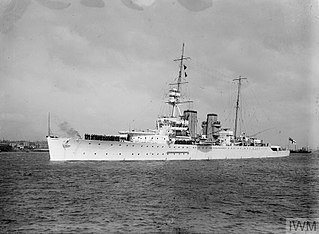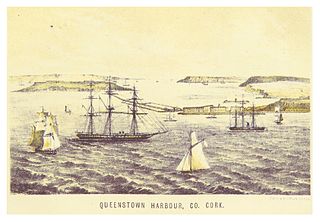Related Research Articles
Ofonius Tigellinus (c. 10 – 69) was a prefect of the Roman imperial bodyguard, known as the Praetorian Guard, from 62 until 68, during the reign of emperor Nero. Tigellinus gained imperial favour through his acquaintance with Nero's mother Agrippina the Younger, and was appointed prefect upon the death of his predecessor Sextus Afranius Burrus, a position Tigellinus held first with Faenius Rufus and then Nymphidius Sabinus.

The Free Church of Scotland is a Scottish denomination which was formed in 1843 by a large withdrawal from the established Church of Scotland in a schism known as the Disruption of 1843. In 1900, the vast majority of the Free Church of Scotland joined with the United Presbyterian Church of Scotland to form the United Free Church of Scotland. In 1904, the House of Lords judged that the constitutional minority that did not enter the 1900 union were entitled to the whole of the church's patrimony, the Free Church of Scotland acquiesced in the division of those assets, between itself and those who had entered the union, by a Royal Commission in 1905. Despite the late founding date, Free Church of Scotland leadership claims an unbroken succession of leaders going all the way back to the Apostles.

Pio Laghi was an Italian cardinal of the Catholic Church. His service was primarily in the diplomatic service of the Holy See and the Roman Curia. He served as Apostolic nuncio to several countries and as the Prefect of the Congregation for Catholic Education. He was elevated to the cardinalate in 1991. Cardinal Laghi was Pope John Paul II's secret emissary to the White House and to several presidents of the United States. He had a particularly close relationship with George H. W. Bush, and George W. Bush.

The Battle of Grenada took place on 6 July 1779 during the American Revolutionary War in the West Indies between the British Royal Navy and the French Navy, just off the coast of Grenada. The British fleet of Admiral John Byron had sailed in an attempt to relieve Grenada, which the French forces of the Comte D'Estaing had just captured.

HMS Effingham was one of five Hawkins-class heavy cruisers built for the Royal Navy during the First World War. She was not finished during the war and construction proceeded very slowly after the end of the war in 1918. Completed in 1925, the ship was assigned to the East Indies Station, sometimes serving as a flagship. She returned home in 1932 and was assigned to the Reserve Fleet as its flagship for the next four years. Effingham was rearmed and modernized in 1937–1938 and then resumed her previous role.

Doclea or Dioclea, also known as Docleia or Diocleia was an ancient Illyrian, Roman and Byzantine city, in the region of the Docleatae tribe, now an archeological site near Podgorica in modern Montenegro.

Gaetano Cicognani was an Italian cardinal of the Catholic Church. He served as prefect of the Apostolic Signatura from 1954 until his death, and was elevated to the cardinalate in 1953 by Pope Pius XII. To date, he and his brother, Amleto Giovanni Cicognani, are the last pair of brothers to serve simultaneously in the College of Cardinals.

Members of the Scudder family have worked as medical missionaries in South India.

HMS Vengeur was a 74-gun third rate Vengeur-class ship of the line of the Royal Navy, launched on 19 June 1810 at Harwich. She had an uneventful career, having participated in no battles or engagements.

Pietro Ostini was an Italian papal diplomat and Cardinal.

Beniamino Stella is an Italian prelate of the Catholic Church who was Prefect of the Congregation for the Clergy from 2013 to 2021; he has been a cardinal since 2014. He began working in the diplomatic service of the Holy See in 1970, was made an archbishop in 1987, and served as a nuncio in several countries between 1987 to 2007. He led the Vatican's training program for its diplomats, the Pontifical Ecclesiastical Academy, from 2007 to 2013.
The Apostolic Nunciature to Haiti the diplomatic mission of the Holy See to Haiti. It is located in Port-au-Prince. The current Apostolic Nuncio is Archbishop Francisco Escalante Molina, who was named to the position by Pope Francis on 4 June 2021.

An Arabian Tragedy is a 1912 American silent film produced by Kalem Company and distributed by General Film Company. It was directed by Sidney Olcott with Gene Gauntier, Robert Vignola and Alice Hollister in the leading roles.

The Commander-in-Chief, Coast of Ireland was both an admiral's post and a naval formation of the Royal Navy. It was based at Queenstown, now Cobh, in Ireland from 1797 to 1919. The admiral's headquarters was at Admiralty House, Cobh.

Charlotte Endymion Porter was an American poet, translator, and literary critic and the cofounder and coeditor of the journal Poet Lore. As the editor or coeditor of editions of the complete works of William Shakespeare, Robert Browning, and Elizabeth Barrett Browning, and as a translator of major writers from around the world for Poet Lore, she was influential in shaping the American literary taste of her day.

The Apostolic Nunciature to Albania is an ecclesiastical office of the Catholic Church in Albania. It is a diplomatic post of the Holy See, whose representative is called the Apostolic Nuncio with the rank of an ambassador.

Robert James Fulton was an American Catholic priest and Jesuit who twice served as the president of Boston College, from 1870 to 1880 and 1888 to 1891. He was influential in the early years of Boston College, as he was in charge of all the school's academic affairs.
A Blot in the 'Scutcheon is a tragedy in blank verse by Robert Browning, published in 1843 and acted in the same year.
A Soul's Tragedy is a play by Robert Browning. It was first printed with Luria as the concluding number of Bells and Pomegranates in April 1846. It is a tragi‐comedy in two acts: the first in verse, the second in prose.
Luria is a play by Robert Browning. It was first printed with A Soul's Tragedy as the concluding number of Bells and Pomegranates in April 1846. It is a tragedy in blank verse.
References
- ↑ Scudder 1895, p. 197.
